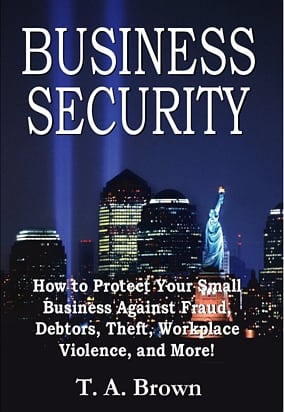So which business structure is right for you? Much will depend on how much formality you want. An LLC is great for businesses that want legal protection, but minimal formality — i.e. no exhaustive meeting minutes or addendum filings. It's also the perfect structure for a start-up who will have foreign owners. An S Corporation is great for a small business owner who can qualify: The IRS places limits both on the number of owners and on who can be an owner in an S Corporation. A C Corporation should be used for those businesses that plan to reinvest their profits back into the company or seek venture capital funding. Therefore, in light of how easy and inexpensive it is to incorporate or form an LLC online today, the only real question is: Should I form an LLC, a C Corporation, or an S-Corporation?
Here are the key factors to consider in selecting the right business structure:
LLC (Limited Liability Company)
In an LLC, the owner’s personal assets are shielded from business liabilities just as they would be in a Corporation. In addition, the IRS views the LLC as a “disregarded entity”. Thus, an LLC does not file separate taxes; company profits and losses flow through to the owners and are subject to each owner’s individual tax rates. The LLC is great for a business that wants liability protection, but seeks minimal formality. It's also the perfect structure for a business with foreign owners since anyone (C Corp, S Corp, another LLC, a trust, or an estate) can be an owner of an LLC.
Key Points To Remember
- Legal protection, but doesn’t have the formality of a corporation
- Anyone can be a member of a LLC
- You can’t be an employee of an LLC as a member of the LLC
A C-Corporation also known as a “C-Corp” or also sometimes referred to as a “General-For-Profit (GFP) Corporation is a legal entity. This entity is not recommended for small business owners. There are strict requirements to form and dissolve it. A C-Corporation can earn money, take out loans and be sued (again, this is a major benefit, since liability shifts from the owners to the corporation itself). A C-Corp is taxed separately and the company must file its own tax returns. The C Corp is ideal for a business that intends to raise capital by issuing stock or attracting investors through VC funding.
Key Points To Remember
- Not recommended for small business owners because generally speaking it is best for companies that seek to raise venture capital
- Typically used for larger corporations
An S Corporation actually starts off as a C-Corp and then soon after incorporation, the owners submit Form 2553 to the IRS to be treated as a pass-through entity. Like a regular corporation, an S Corp is a collection of stockholders who share company ownership. But in this case, the income/loss of the company is passed through to each shareholder's personal tax statement. An S Corporation is great for a small business owner who can qualify.
Key Point To Remember
- Want to avoid double taxation
- Every member of company taxed on 1040
- Must be a US legal citizen or a resident legal alien
- There's a maximum of 100 shareholders
- Only have one type of stock
- In addition to being a shareholder you can also be an employee of a corporation
- Starts out as a C-corporation, but for those that qualify will fill out a 2553 to become an S-corporation.
- Must be filed within 75 days of when the corporation was formed and for the following year it must be done March 15th
Other Key Points:
- Sole-proprietorship –The Sole Proprietorship is the simplest form of business entity. However, without the protection of a corporate shield, personal assets are exposed to business liabilities. And, even where a small business owner doesn’t have assets today, a judgment against that business owner can last up to 22 years. It is not a legal entity. It does not stand on its own and there is no corporate shield. As entrepreneurs when you go to the county and completing paperwork it is not forming a legal entity, but instead a DBA or Doing Business As. Someone who is doing business under their own name or under a fictitious name. It is the simplest form of business entity. A personal judgment can be an assets can last for up to 22 years.
- Double – taxation – Corporation is taxed when it makes profits and when the corporations provide dividends they get taxed again on the dividends.
- Pick an entity and go with it. You can always change it and convert it.
This information is courtesy of Nellie R. Akalp. She is the CEO and Co-Founder of CorpNet. CorpNet provides incorporation services to all 50 states. CorpNet.com has been revised including offering free business consultations and FAQ for small business owners.









































 |
|
Comments 3